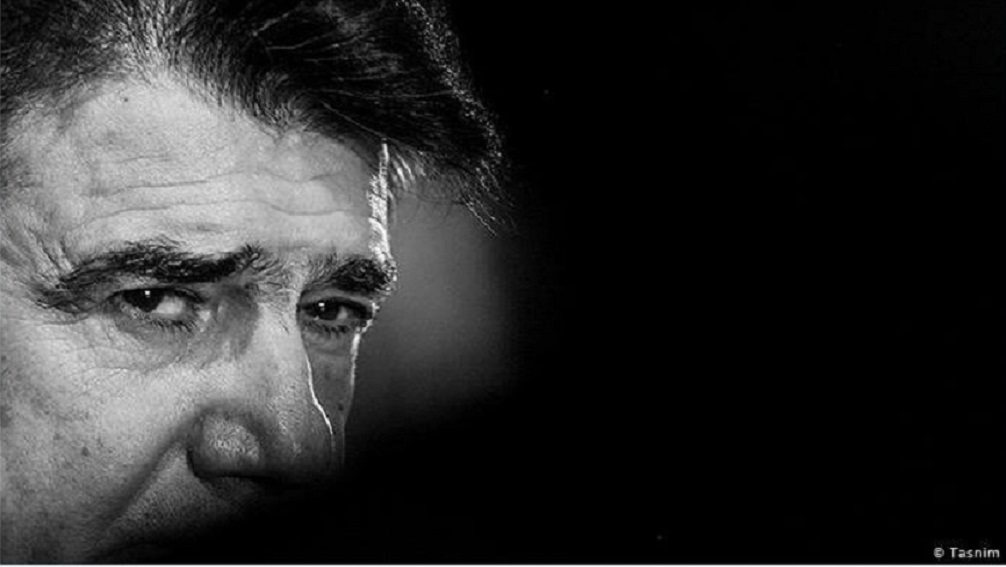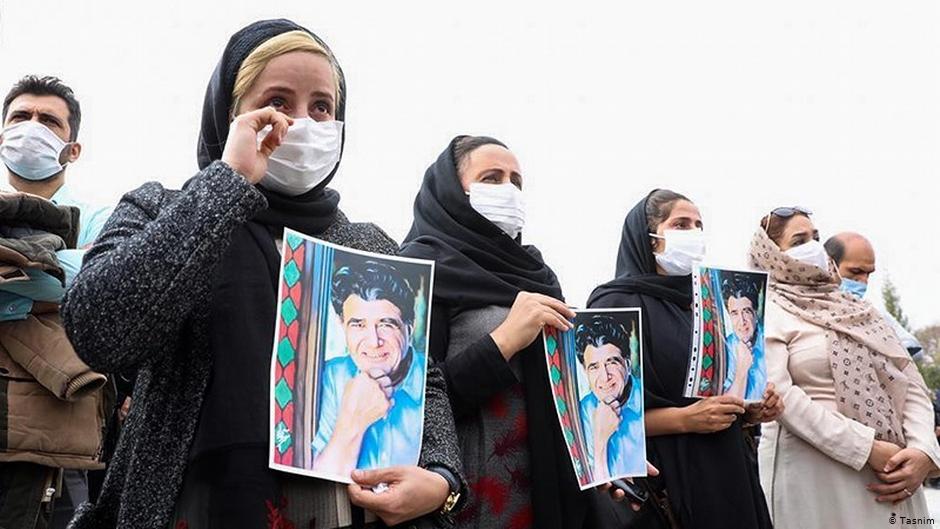The voice of the poets

“The Bird of Dawn...we want The Bird of Dawn!” Hearing this chant issuing from eighty-year-old throats was quite an experience. In a tone somewhere between anxious doubt and joyous expectation, it echoed through the Cologne Philharmonie, the Royal Festival Hall in London and the Town Hall Theatre in New York.
The insistence with which these aged throats demanded “The Bird of Dawn” might have made you worry that the bird’s voice could perhaps fail him. For decades, this fear was completely unjustified: no one can remember the master closing a concert with anything but “The Bird of Dawn”. At the end, the master always called on the creator, on supra- and sublunary nature, to let the “dawn bird” out of its cage.
And the dawn bird was never so “heartless” as to refuse to unfurl his wings, come out and sing the “Melody of the Freedom of Men”. This encore crowned the ceremonial act, lifted the audience’s spirits once again and released them with “fresher flames of hope” back into the corridors of exile or the everyday struggles of their homeland.
Those who never experienced this ritual must also try to understand what the death of the singer Mohammad Reza Shajarian signifies. It brings deep mourning to a nation whose homeland is despairing over the difficult path to modernity, while its people are also scattered across all four corners of the globe. Shajarian held them all together.
No one could resist his charisma. He helped shape people’s identity. He offered a resonance chamber for cultural memory. His clear, piercing voice pointed the way to the origin of his country’s art, to Khidr’s spring, if you like. He was a legend long before his death. Mohammad Reza Shajarian died last Thursday in Iran, at the age of 80, following a long illness.
One of a kind
Persia defines itself via its art and aesthetics, just as the Germans once did before the political and moral ruptures of the 20th century. Shajarian was the representative of Persian art who rose above everyone and everything. He was known simply as “Ostad”, “Master”.
Shajarian achieved that high rank through his voice and his singing technique. Talent, hard work and a natural physiognomy worked together to produce a unique tenor. And Shajarian placed it utterly at the service of classical Persian music. He collected its melodies, forms and sequences and refined them. He worked with the best instrumentalists
Classical Persian music is not really designed for large concert halls. It isn’t orchestral; its fundamental tone is quiet, sometimes no more than a whisper. Anyone who sets foot in the music room of Isfahan’s 17th-century royal palace will guess as much. The main instruments – the sitar and tar, kamancheh, santur, daf and ney – usually murmur more than they boast. Then they burst into brief flares of sound.
Shajarian entered into an unmistakeable communication with them all. “Accompaniment” would be the wrong word; Shajarian spoke to them. He loved them, you could sense that in every bar – though in fact the whispering tones of the instruments and the piercing force of his singing voice were opposites. They produced a taut equilibrium, a harmonic magic that is impossible to forget.
A piece called “Bidad” is one of the most beautiful dialogues that music has ever created. Shajarian performs it with the santur virtuoso Parviz Meshkatian (1955-2009). This musical dialogue between singer and instrument opens up the wider context of this art to the listener. As you begin to explore it, you quickly realise that the honorific “Master” is misleading.
At the service of tradition
Shajarian regarded himself as a servant. He served tradition by working within it. In their dialogue, Shajarian and Meshkatian set to music a poem by Hafez (c. 1315-1389) about the longing for lost friendship and vanished peace. The poem consists of a series of ever more probing questions. What has become of the spring cloud, the nightingales, the men who sup wine? Where have they all gone?

The recording was made in the 1980s, during the war with Iraq in which so many lives were lost. The Iranian population took comfort in it, and it was widely listened to. Shajarian demonstrates an important basic principle of Persian music here. It serves the text. The music brings the poetry to life by giving it the most beautiful form imaginable.
Mohammad Reza Shajarian was buried on Saturday in the grounds of the Ferdosi Mausoleum (940-1020) in Tus. The choice of this burial site in the province of Khorasan illustrates the historical dimension. Ferdosi is the poet of the "Book of Kings" (Shahnameh), without whom the Persian language would not have survived.
In this steppe with its wide horizon, the caller may easily get the idea that nobody hears him except God. And it was here that Shajarian was born. As a little boy, he came to music through the melodic recitation of the Koran. And as a mature singer, he found his way to the poets – first and foremost Hafez, the leading historical figure of Persian art.
In dialogue with Hafez
At the end of every poem, Hafez addresses himself in two final lines that have an ironic undertone. As if he were taking a step back from his work, commenting on his own words and his poetic endeavours from a certain distance. When Shajarian reaches these lines, what makes his work so significant becomes explicit.
Hafez is no longer speaking to himself: Shajarian is calling to Hafez, as an equal. There is no higher step that a Persian artist can reach. The poem ends with the line: “Hafez, be silent now, no one knows the divine secrets.”
When Shajarian came to perform in Berlin, Cologne or Frankfurt, the concert halls may have been full, but German audiences stayed away. Or in other words, they withdrew into their own spiritual provinces. And that left space for the man who would probably have been Shajarian’s most worthy, curious and grateful German listener. What might Goethe have said – or rather, what poems might he have written – about Shajarian’s interpretation of Hafez? If only we knew.
Goethe knew that Hafez’s poems were songs that should be sung. And he knew that these songs had the power to bring comfort. The West-Eastern Divan begins:
"Though my path be rocky, hard and steep,
Hafez, your songs will comfort me"
From a German perspective, Shajarian acquires a significance all of his own in cultural history. In calling on Hafez, in the aesthetic relationship that he has with him, Shajarian is no less than Goethe’s successor.
Goethe might not have been able to resist one snide remark. Shajarian’s music is very varied, but the tone and mood is always marked by an unshakeable, lofty seriousness. The flashes of mischievous wit that regularly appear in Hafez’s poetry, which Goethe picks up with such delight, are lost in this monumental music.
Shajarian certainly did not stick to setting the Persian classics to music; he also used modern poetry. And a clear political conviction can be read in his choices. The folk song about the “Bird of Dawn” was written at the time of the uprisings against the absolutist monarchy, more than 100 years ago. Another noteworthy piece is "Winter", an interpretation of the poem of the same name by Mehdi Akhavan-Sales (1929-1990), which reflects the icy period after the democratic prime minister Mosaddegh was toppled in 1953 and the restoration of puppet monarch Shah Reza Pahlavi.
During this period of political allegiance with the USA, which brought with it a westernisation of Iranian culture, the young Shajarian was part of an intellectual movement devoted to a "return to the cultural self". He championed traditional music on Iranian radio and television, firmly convinced of its value for the formation of character and intellect. He wanted to provide a deliberate counterpoint to Iranian imitations of western pop music.
The border principle
Shajarian was an enthusiastic and knowledgeable consumer of European, Indian and East Asian classical music. He also took a degree of pleasure in jazz. But when it came to making his own music, he followed the principle of the border, of cultural independence. He quickly abandoned experiments with piano and violins. He regarded the possibility of aesthetic enrichment through mixing musical styles and techniques as nonsense. For him, it represented more of a danger of dilution and impoverishment. He would have seen the term "world music" as an insult. His frame of reference remained the Persian scale as long as he lived.
Shajarian suffered from the advance of bad taste during the Shah’s reign, and then also from the ideologically-motivated harassment of musicians following the Islamic Revolution. Under Khomeini, any public concerts that didn’t glorify the regime and the war were prohibited. After Khomeini’s death, Shajarian was permitted to perform in Iran from time to time.
There is no forgetting one sarcastic piece in a newspaper following a 2004 "benefit concert" in Tehran for the victims of a major earthquake in the south-east of the country. "Thousands of people have to lose their lives in an earthquake before there is a decent pretext for music lovers to get to enjoy a Shajarian concert," a critical journalist wrote.
Numerous friendships linked him to critical cineastes, visual artists and writers. He himself held back from overtly expressing any political opinions. He deviated from this principle in 2009, when in several interviews he condemned the brutality with which the anti-government protests had been suppressed.
He dissociated himself from the regime by banning the state radio stations from playing his music for some time. He was spared personal attacks such as arrests and interrogations. Mullahs and Revolutionary Guards never dared lay a hand on him.
As long as he lived, the rulers of his country eyed Shajarian with mistrust, as a potential threat to their authority. Following his death, they will try to co-opt him. This is an established pattern. The secret service tortured the writer Houshang Golshiri in prison for years – and when he died, "cultural policy makers" came knocking at his wife’s door to invite her to contribute to appreciative documentaries about him and his work.
But the artistic legacy that Mohammad Reza Shajarian leaves behind will be far more significant than any political intrigues. He will serve as an aesthetic role model to generations. Young singers emulate him, among them his son, Homayoun, orienting themselves by his style and technique. Long before musical works of art could be mechanically reproduced, Goethe said:
Know this: that poets’ words will rise
To the gates of paradise
Will softly knock, float, make their plea,
Asking to live eternally.
It is as if he had guessed that the poets’ words stand a better chance when they are set to music by a true master.
Stefan Buchen
© Qantara.de 2020
Translated from the German by Ruth Martin
The author is a television journalist for the ARD magazine programme Panorama. He studied Arabic literature and language at Tel Aviv University.
